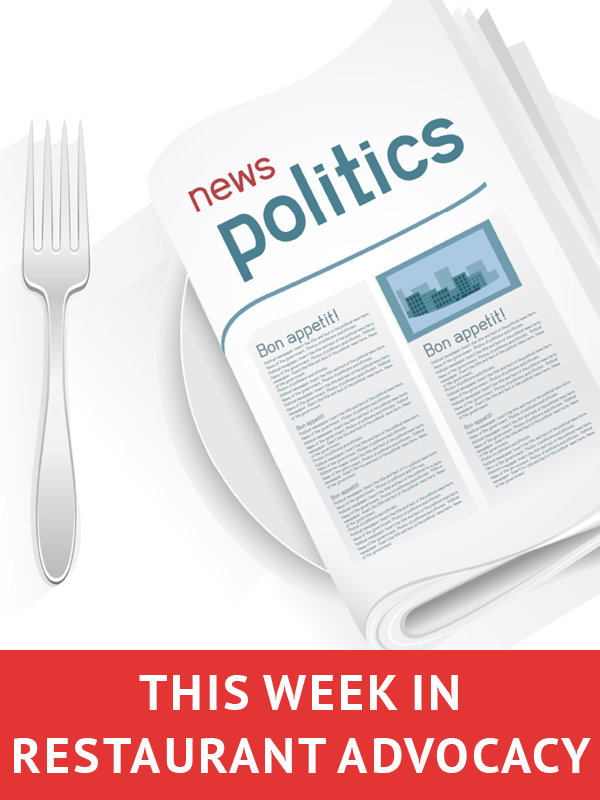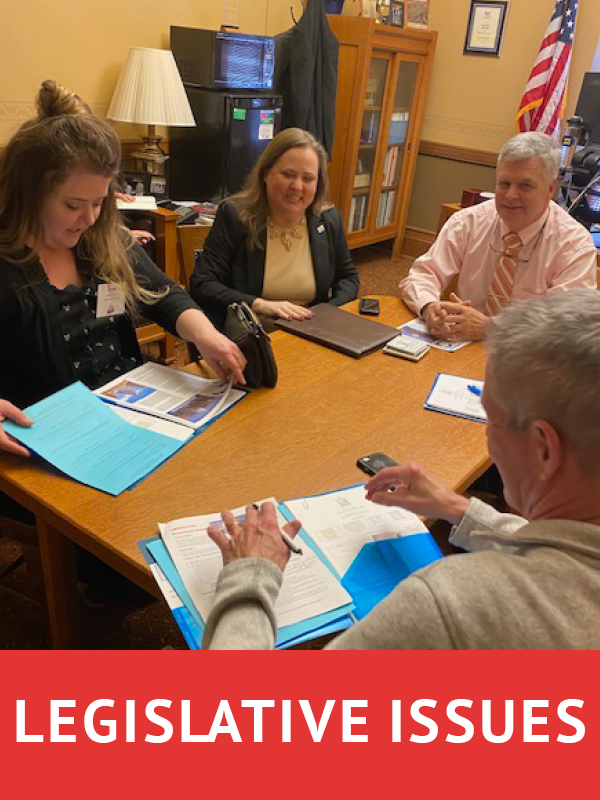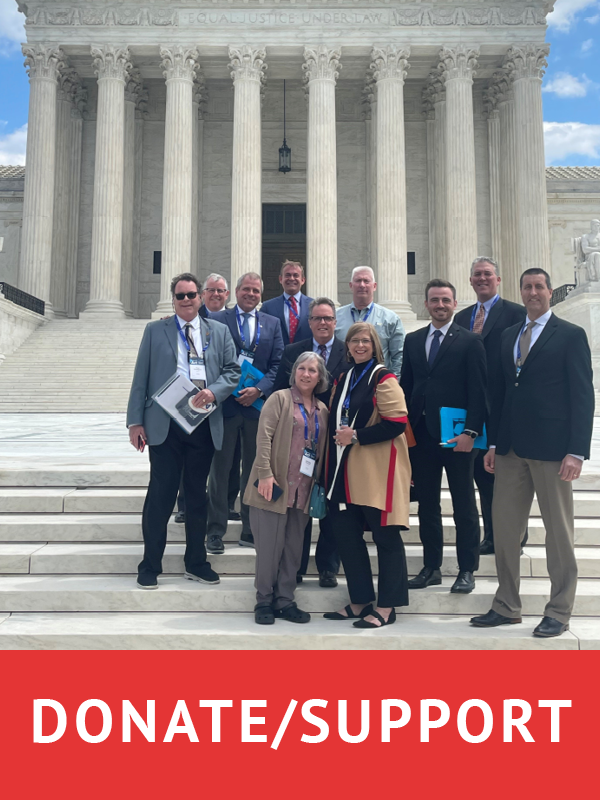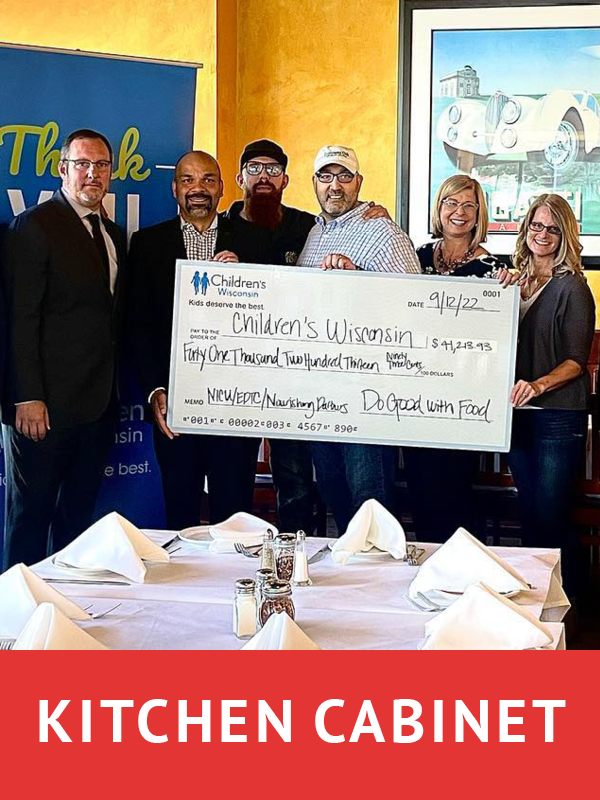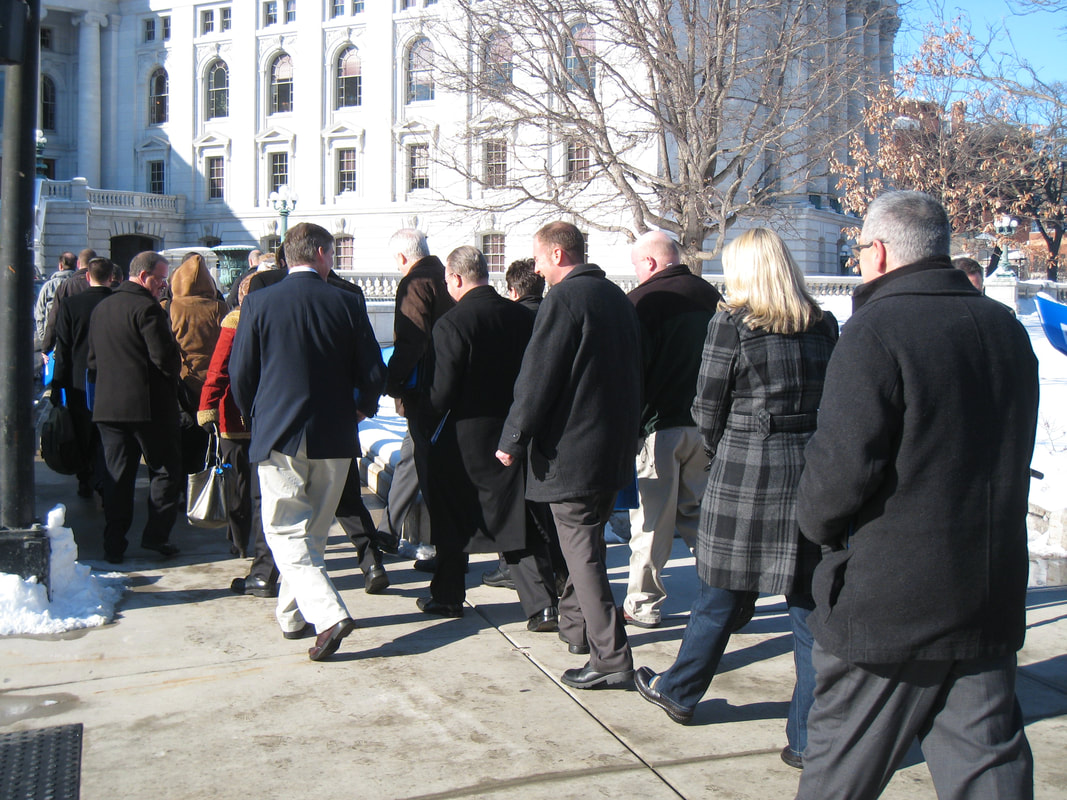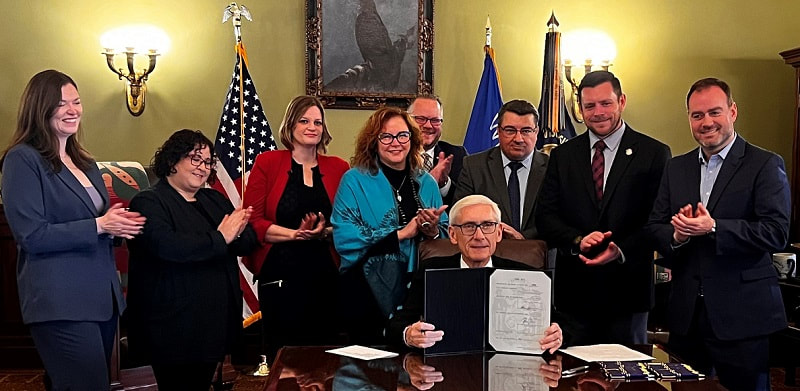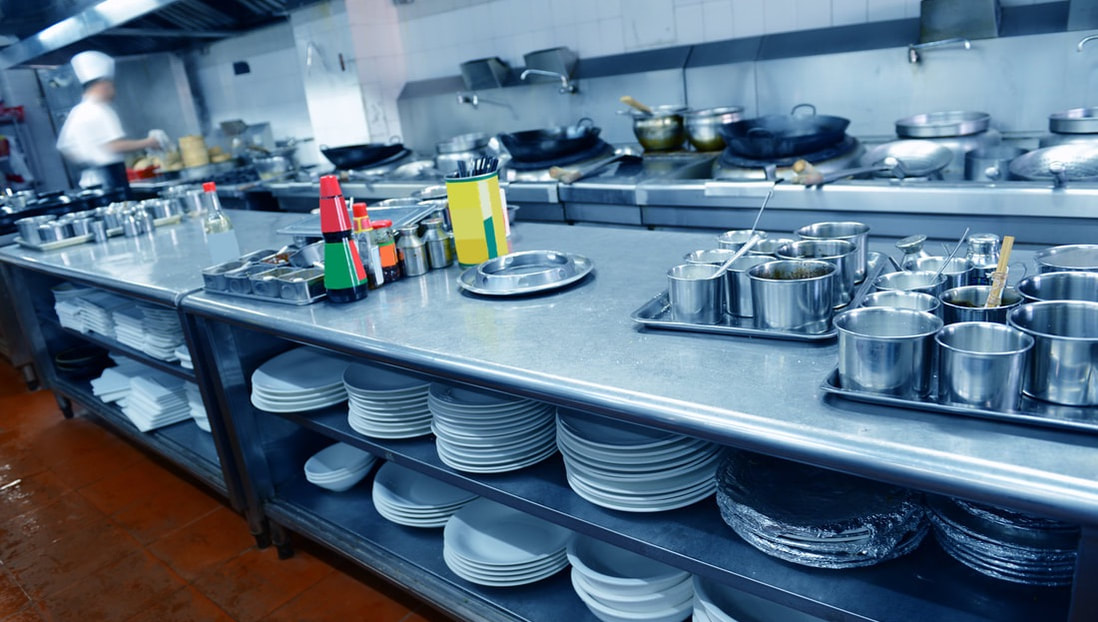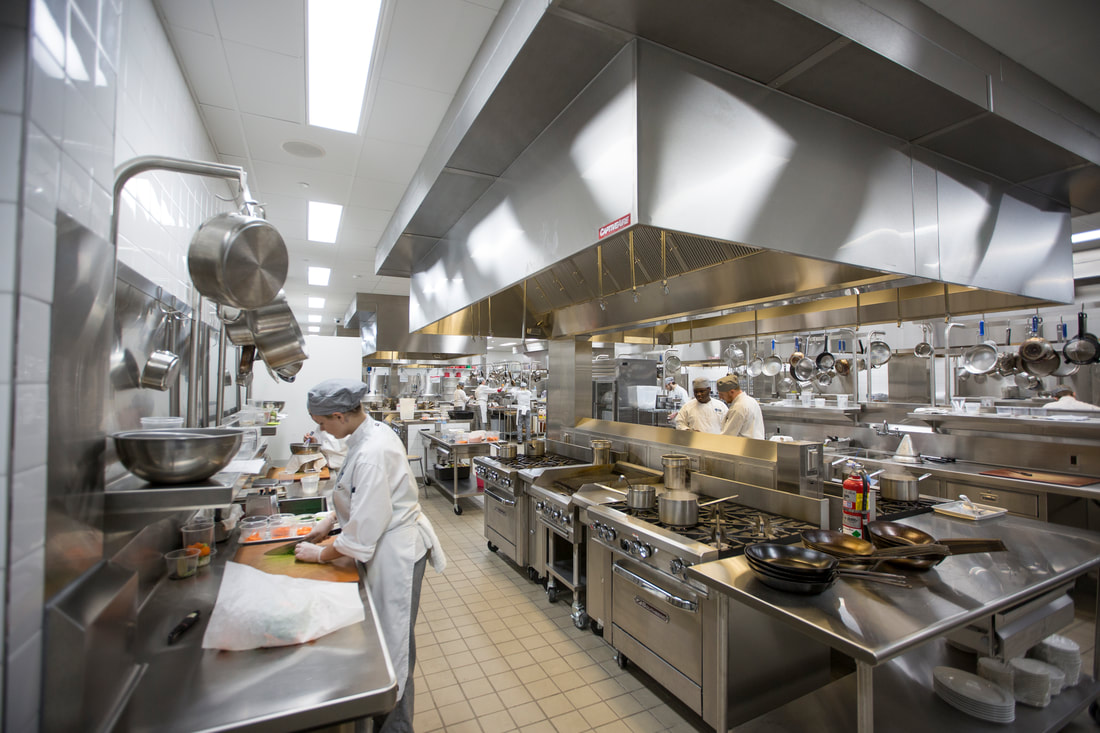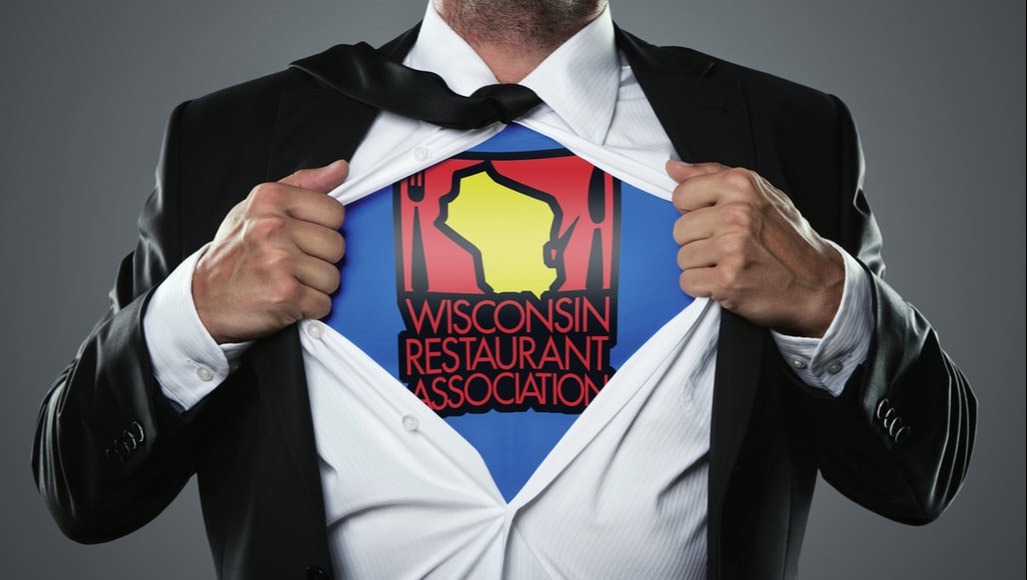Issues & Advocacy
|
POLITICAL ACTION
At its core, advocacy seeks to help people have their voices heard on issues that are important to them. The Wisconsin Restaurant Association advocates for food, beverage and hospitality establishments and the people that are part of this great industry. We work at the State Capitol on behalf of all restaurants in Wisconsin to advance laws and regulations for the industry, ensure food safety protections and promote legislation that improves operations. WRA’s goal is to create a better environment for restaurants to concentrate on what they do best and provide an engaging place for employees and guests to thrive. WRA has your back. |
New Wisconsin Third-Party Delivery Law is in Effect |
July 8, 2024
|
You may have heard about a new law that puts in place measures relating to how third-party delivery companies interact with restaurants to curb certain third-party delivery company business practices that are harmful and costly to restaurants.
WRA lobbied for this law which is highly beneficial to restaurants and gives them the choice whether or not a third-party delivery company can deliver their food! The law went into effect on July 1, 2024.
Under the new law:
This means that restaurants can now report a third-party delivery company that is listing the restaurant without their consent to the Department of Agriculture, Trade & Consumer Protection. Visit this website to file a complaint – NOTE: there is not a special form for a third party delivery company complaint – restaurants need to use DATCP’s general complaint form.
WRA lobbied for this law which is highly beneficial to restaurants and gives them the choice whether or not a third-party delivery company can deliver their food! The law went into effect on July 1, 2024.
Under the new law:
- A third-party food delivery service can no longer list a restaurant’s name, address or logo without consent.
- Food delivery service drivers are required to have knowledge of basic food safety principles.
- Third-party delivery services are required to share data with the restaurant about the content of orders and the times that orders are placed.
- Third-party delivery companies will incur progressive fines if they do not abide by the law.
This means that restaurants can now report a third-party delivery company that is listing the restaurant without their consent to the Department of Agriculture, Trade & Consumer Protection. Visit this website to file a complaint – NOTE: there is not a special form for a third party delivery company complaint – restaurants need to use DATCP’s general complaint form.
Legislative Issues
|
WRA is the one trade association in Wisconsin that identifies threats to restaurants and taverns and lobbies to address industry problems of all kinds, not just legislation on alcohol, taxes or local issues.
|
TAKE ACTION
Current Issues
|
You can help make sure that the restaurant industry is heard on key issues by contacting government leaders. WRA is currently lobbying on these issues. In addition to WRA’s lobbying efforts, an email or call from a constituent makes all the difference to lawmakers.
|
School Start Date
|
The Wisconsin Restaurant Association supports the current administrative rule regarding the September 1 school start date in Wisconsin (Ch. PI 27 regarding the commencement of the school term prior to September 1) and opposes the current proposal to change it.
There are two major reasons why a September 1 school start date is important to restaurants and all the other small businesses that rely on tourism visitors:
|
The Wisconsin Restaurant Association advocated for the current September 1 K-12 school start date. This advocacy effort began in the mid 1990’s and culminated in 2000 when the current statute mandating a September 1 start date went into effect. The September 1 date was a compromise between the tourism industry and the legislature. The agreed upon statute further gives parameters of when a school district can commence the school term prior to September 1 for extraordinary reasons. This section of statute was intended to give some leeway for issues out of the school district’s control that would interfere with a September 1 start. The resulting rule promulgated by the Department of Public Instruction gives districts the ability to plan for or deal with these extraordinary circumstances that occasionally occur. All the rules have one important thing in common – they apply to circumstances that effect all the children in the school district, or in the case if an international baccalaureate program, the large majority of the entire high school, but not the rest of the school district.
School districts and boards currently have the ability to design a school calendar to meet the needs of their students and staff. Accommodation for students with special circumstances can be provided, without requiring the entire student body to return to school early. Changes to PI 27 are not necessary at this time to address local district needs. Restaurants are the cornerstones of their communities. They not only provide food - they support jobs and provide revenue in the form of local taxes and fees. In most parts of the state, they rely on summer tourism to keep their businesses viable. Without tourism traffic, they do not have the wherewithal to support their communities, including schools, and remain in business. |
Tourism Promotion
|
For more than a decade, Wisconsin’s tourism marketing budget lags woefully behind that of our surrounding competing states. The WRA requests a significant increase in marketing expansion funds to the Wisconsin Department of Tourism’s 2023-2025 state budget, including additional funding for meetings and convention (M&C) and sports events marketing and an additional staff position, with relevant experience in those markets, to oversee the Department of Tourism’s M&C and Sports Marketing efforts.
Effective tourism promotional spending results in more visitor spending, higher income for workers, and more state and local tax revenue. It also enhances efforts to attract talent and businesses to the state by giving visitors and potential visitors a positive brand image of the state. The Wisconsin tourism industry is recovering from the devastation caused by COVID-19. This is due in part to the $200 million in federal ARPA funding that Governor Evers provided several sectors of the state’s tourism industry. |
The Wisconsin Department of Tourism directly received $7.5 million in ARPA funds that they primarily used for marketing. Those funds will no longer be available come January 2024. Wisconsin is enjoying more visitation from travelers than our competitive set, such as Michigan and Minnesota. We are also beginning to see meetings and conventions return, but at a much slower pace than leisure travel. This is not the time to decrease the state’s tourism marketing budget by more than 50 percent. In 2021, the total economic impact of tourism in Wisconsin was $20.9 billion, including $1.4 billion in state and local taxes. These figures are expected to increase in 2022, bringing us closer to, if not exceeding, pre-pandemic levels. Of course, it is important to note that inflation was not taken into account with these figures, and it has certainly affected the industry’s bottom line. An increased promotional funding commitment will ensure that the industry most negatively impacted by the pandemic will continue to prosper.
|
Workforce DevelopmentSupporting Workers
With our industry now facing an epic labor shortage, WRA is fully focused on how to help.
|
View WRA's activity and support for issues and bills during the legislative session on the Lobbying Interests tab of the Government Accountability Board website.
Current Federal Issues
|
The National Restaurant Association advocates for the restaurant industry on the national level. Visit RestaurantsAct.com, the grassroots action site of the National Restaurant Association, for the latest information on national advocacy activity that will impact restaurant business operations.
See the Association's Policy Primer for a summary of current federal issues. |
Industry Successes
|
WRA's vigilance on key issues in the past few years has already saved your business plenty of money. Imagine how changes to any one of these laws would cost your business and employees:
Combined with the participation and support of our members, WRA has accomplished the following: |
2023Third Party Delivery Consent
Wisconsin is the 14th state to enact measures relating to how Third Party Delivery Companies interact with restaurants. At the request of the WRA, Senator Pat Testin and Representative Alex Dallman introduced this new law to curb third party delivery company business practices that emerged during the pandemic that are harmful and costly to restaurants. Alcohol Laws Reform Act 73 (the Omnibus Alcohol Bill) brings many needed updates to Wisconsin's alcohol statutes. It clarifies what is now considered policy interpretations, makes some common industry practices legal and provides a more prominent place for alcohol law interpretation and enforcement at the state agency level. Personal Property Tax WRA succeeded in repealing the onerous personal property tax on restaurant equipment that unfairly singled out restaurants. This repeal will save Wisconsin businesses over 200 million dollars every year starting with the 2024 tax year. Discount Increased on Sales Tax Retailer’s Allowance With credit card swipe fees increasing, WRA advocated for a higher discount on the retailer’s allowance. We’re thrilled to let you know that this was included in the 2023-2025 state budget! |
2021PPP Expense Deductibility – Act 1
WRA successfully pushed for Wisconsin tax law to mirror the federal government and allow for expenses paid for with COVID Paycheck Protection Program loan proceeds to also be deductible on state income tax returns. Unemployment Insurance Benefit Charging – Act 4 WRA ensured that Unemployment Insurance Benefit Charging relief was extended to March 13, 2021 and that employers would receive the relief automatically, without having to fill out onerous paperwork. Business COVID Liability Protection – Act 4 WRA worked hard to make sure Wisconsin businesses cannot be sued by customers and employees who claim they caught COVID-19 in their businesses Cocktails-to-Go – Act 21 Soon after the Pandemic began, WRA advocated the legislature and the Governor to allow restaurants and bars to sell Cocktails-to-Go. Legislation was passed and signed in early 2021, making sealed Cocktails-to-Go permanently legal in Wisconsin Electronic Tip Declaration – Act 26 Trial lawyers were taking advantage of an outdated Wisconsin employment rule and were recruiting tipped restaurant employees to bring lawsuits against their employers, if the employee reported tips via electronic point of sale systems. Restaurants were spending tens of thousands of dollars defending what is considered a legal practice by state and federal agencies. WRA pushed to pass a law allowing for use of POS systems to record employee tips, saving employers costly legal fees Restaurant employee vaccine priority WRA worked hard to get restaurant employees added to the COVID 19 vaccine priority list that included other essential food workers. The Department of Health Services added restaurant employees on March 15, 2021 |
2019-2020The 2019-2020 Legislative Session was cut short by the COVID Pandemic, when the Wisconsin Legislature recessed early and did not return until January 2021. WRA was successful in stopping an effort to repeal the September 1 Uniform K-12 School Start date. WRA also secured an increase in funding for the Wisconsin Department of Tourism’s marketing budget. Prior to the Pandemic, WRA was close to securing a temporary change in bar closing time during the 2020 Democratic National Convention in Milwaukee. Those efforts ended when the in-person Convention was cancelled. WRA was successful in securing Unemployment Benefit charging relief was included in the Act 185, a bill addressing the COVID Pandemic and the legislature’s last piece of legislation of the session. This ensured that employers’ Unemployment Insurance funds would not be depleted because they were forced to lay-off or furlough employees due to the COVID Pandemic.
The WRA also worked with the Department of Revenue and the Wisconsin Economic Development Corporation to make We’re All In grants available to restaurants adversely affected by the Pandemic. Over $670 million was distributed to the Wisconsin restaurant and hospitality industry. |
2018Passed Employment Law Standardization Act
WRA pushed to pass this law that pre-empts municipalities from enacting local employment laws such as “fair Scheduling” or mandating specific employment benefits – this ensures that employment laws are set at the state level allowing businesses to develop scheduling and benefit packages that work best for their employees. 2017Repeal of Personal Property Tax
WRA succeeded in partially repealing the onerous personal property tax on restaurant equipment that unfairly singled out restaurants – this will mean reduced taxes for some restaurant businesses. |
2001 – 2016
2016: There is a wave of major cities around the nation banning plastic bags, polystyrene, coated papers and other specific types of containers used by restaurants. WRA and other business-sector groups banded together and pass a law preventing local governments from banning or taxing containers, bags, bottles or cans used by retail businesses.
2015: A secret budget provision would have eliminated the liquor licenses of hundreds of restaurant operators around the state, putting many of them out of business without compensation. WRA uncovered this secret maneuver and convinced Governor Walker to veto the provision from the budget bill.
2013: New York City bans soft drinks larger than 16 ounces. The City of Madison discusses similar legislation. WRA gets a state law passed preventing local governments from regulating serving sizes, nutritional values, nutritional labeling or types of foods that may be served in restaurants.
2011: WRA helps to pass a state ban on local regulation of sick leave benefits and Family and Medical Leave, killing the Milwaukee sick leave mandate.
2010: City of Superior debates a plan to ban toys and other prizes in kids’ meals offered by restaurants. WRA staff and members serve up the facts to Council members, and defeat the proposal.
2009: Bill introduced by Senate Majority Leader to create automatic, annual minimum wage hikes and allow local minimum wage ordinances. WRA rallied members and got the measure pulled from the state budget, then defeated the bill in the Assembly Labor Committee.
2008: Milwaukee voters approve a ballot initiative requiring a paid sick leave benefit for all employees. WRA joins a business-sector lawsuit against the City of Milwaukee and delays implementation of the sick leave ordinance until 2011.
2006: WRA championed a state law banning obesity-related lawsuits against restaurants.
2005 & 2006: An executive order raises Wisconsin’s minimum wage, but WRA blocks a commensurate increase in the server wage. In fact, there has not been a significant increase in the server wage since 1981. WRA knows that wage increases are needed more in the back of the house. Forcing higher wages in the front of the house is counterproductive.
2005: WRA gets a new state law passed that nullifies Madison’s minimum wage and prevents all local governments from setting their own minimum wages.
2001: State of Wisconsin claims that all unredeemed gift certificates and gift cards are “unclaimed property” and tells retail businesses to turn over the proceeds of unused gift obligations to the state treasurer. WRA pushed through legislation clarifying that unused gift cards are not “unclaimed property.”
2016: There is a wave of major cities around the nation banning plastic bags, polystyrene, coated papers and other specific types of containers used by restaurants. WRA and other business-sector groups banded together and pass a law preventing local governments from banning or taxing containers, bags, bottles or cans used by retail businesses.
2015: A secret budget provision would have eliminated the liquor licenses of hundreds of restaurant operators around the state, putting many of them out of business without compensation. WRA uncovered this secret maneuver and convinced Governor Walker to veto the provision from the budget bill.
2013: New York City bans soft drinks larger than 16 ounces. The City of Madison discusses similar legislation. WRA gets a state law passed preventing local governments from regulating serving sizes, nutritional values, nutritional labeling or types of foods that may be served in restaurants.
2011: WRA helps to pass a state ban on local regulation of sick leave benefits and Family and Medical Leave, killing the Milwaukee sick leave mandate.
2010: City of Superior debates a plan to ban toys and other prizes in kids’ meals offered by restaurants. WRA staff and members serve up the facts to Council members, and defeat the proposal.
2009: Bill introduced by Senate Majority Leader to create automatic, annual minimum wage hikes and allow local minimum wage ordinances. WRA rallied members and got the measure pulled from the state budget, then defeated the bill in the Assembly Labor Committee.
2008: Milwaukee voters approve a ballot initiative requiring a paid sick leave benefit for all employees. WRA joins a business-sector lawsuit against the City of Milwaukee and delays implementation of the sick leave ordinance until 2011.
2006: WRA championed a state law banning obesity-related lawsuits against restaurants.
2005 & 2006: An executive order raises Wisconsin’s minimum wage, but WRA blocks a commensurate increase in the server wage. In fact, there has not been a significant increase in the server wage since 1981. WRA knows that wage increases are needed more in the back of the house. Forcing higher wages in the front of the house is counterproductive.
2005: WRA gets a new state law passed that nullifies Madison’s minimum wage and prevents all local governments from setting their own minimum wages.
2001: State of Wisconsin claims that all unredeemed gift certificates and gift cards are “unclaimed property” and tells retail businesses to turn over the proceeds of unused gift obligations to the state treasurer. WRA pushed through legislation clarifying that unused gift cards are not “unclaimed property.”
Get Involved: Campaign Support
WRA-Political Action CommitteeWRA’s Political Action Committee (WRA-PAC) helps elect state and local candidates that aim to benefit our industry. WRA-PAC combines contributions from individuals to distribute funds to candidates for greater effect (business donations are allocated to Wisconsin RAF).
Contributions must be personal contributions, not from a business. |
Conduit FundThe WRA Conduit program helps you distribute your personal funds to any candidate for local or state office, at any time. As an individual, you have full control over your political contributions -or- contributions may also be pooled for larger impact.
|
The Wisconsin Restaurant Association Advocacy Fund (RAF) educates members and the public on legislative issues that impact Wisconsin restaurants. Through RAF, members receive the Capitol Report newsletter and are updated on important legislative issues. Get involved with our community of passionate restaurant industry advocates.
The RAF helps to:
|
Advocacy fundraising events range from telling legislators how the issues affect your business to joining other foodservice pros for a clay shooting event. |
FAQs
Why does WRA lobby on the issues it does?
- Looking out for restaurants and their best interest. We only lobby on things that relate to business.
- Want restaurants to thrive - concentrate on what on they do best, being hospitable, and providing an engaging place.
How do I get involved?
There are many ways to help with WRA’s advocacy efforts. Whether it’s testifying at hearings, talking with legislators at Restaurant Advocacy Day at the capitol or contacting legislators on important issues, grassroots involvement from restaurant operators is an absolute necessity for lobbying success. On a federal level, Wisconsin restaurant industry professionals have the opportunity to attend the National Restaurant Association’s Public Affairs Conference in Washington DC every year to lobby on important federal issues that affect the restaurant industry and small businesses. Contributions to the WRA Political Action Committee and Restaurant Advocacy Fund are also essential in supporting WRA’s lobbying efforts on behalf of the restaurant industry.
“The advocacy that WRA does at the state capitol is very important for holding down all different types of costs that restaurants have to deal with.”


